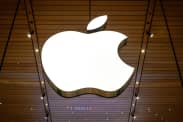The beauty-products company Avon Products Inc. is in the spotlight after a BBC report said that Avon has maintained links with Russia some 23 months after the unprovoked full-scale invasion of Ukraine.
A slew of major Western corporations, such as Apple Inc.
AAPL,
Shortly after Russia launched that invasion, Avon announced the suspension of investments in Russia and the end of Russian exports to other markets. But, while Western companies have come under intense pressure to exit Russia, the BBC reports that Avon is still recruiting new sales agents in the country and is continuing production at a plant in the Moscow region.
In a statement sent to MarketWatch, Avon described the company’s operations in Russia as “a critical support” for women in the country.
Related: Kremlin could seize Russian assets of U.S. companies, warns Moral Rating Agency
Opinion: Seize Russia’s frozen assets to support Ukraine’s military and finance its recovery
“In terms of operations in Russia, Avon continues to provide its Representatives with the means to sustain their financial independence and is supplying their social selling businesses,” it said. “We see this as critical support for women whose livelihoods depend on their Avon business and believe that restricting their access to selling products would have an outsize impact on women and children.”
The plant in Naro-Fominsk serves only the Russia market and does not export to other markets, Avon said.
“For over 135 years, Avon has stood for women wherever they are in the world, regardless of ethnicity, nationality, age or religion.”
Avon’s parent company, Natura & Co
NTCO,
Related: Brazil’s Natura announces $3.7 billion purchase of Avon
The Moral Rating Agency, an organization set up after the invasion of Ukraine to examine whether companies were carrying out their promises to exit Russia, has slammed Avon over its Russian operation, accusing the company of “moralwashing.”
“[Avon] is weaponizing women’s issues and victimizing women for its own commercial interests,” said Moral Rating Agency Founder Mark Dixon, in a statement.
“By hiring new people, keeping production going, and keeping products on the shelves, Avon is supporting the economy that pays for the invasion of Ukraine,” Dixon added. “Avon reps knocking on doors in Russia sends a ‘business as usual’ signal to Russian people while the West is trying to send them the message that Putin has made Russia a pariah state.”
Also see (September 2023): Pentagon chief Lloyd Austin urges European allies to ‘dig deep’ and supply Ukraine with further air defenses
MRA called for a boycott of Avon. “The Avon reps around the world and consumers of Avon should boycott the company,” Dixon said in the group’s statement. “Ukraine should ban Avon from operating in its country in the future if it doesn’t get out of Russia now.”
“We are giving Avon a new slogan — ‘Beauty & The Beast,’ ” Dixon added.
Read on:
German exports to Russia’s neighbors have surged
WeWork, Carl’s Jr., Unilever and Shell among companies slammed by Yale over operations in Russia







